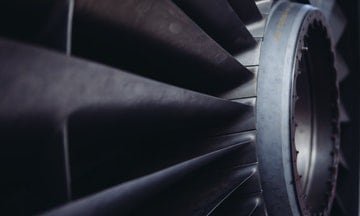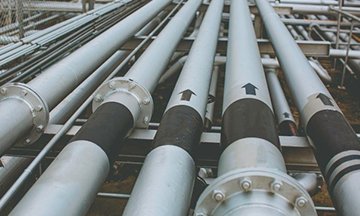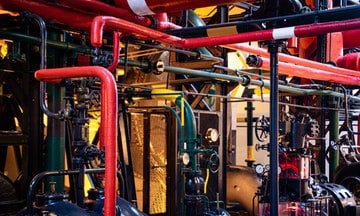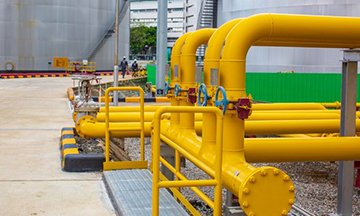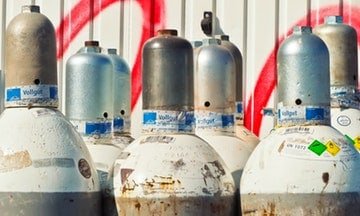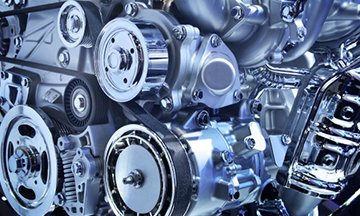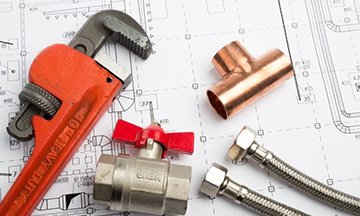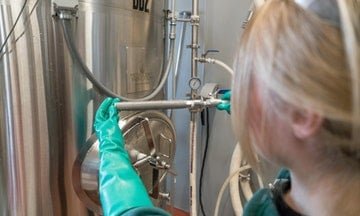Machinery Failure Analysis and Troubleshooting
| Date | Venue | Duration | Fees | |
|---|---|---|---|---|
| 27 May - 31 May, 2024 | Dubai | 5 Days | $4750 | Register |
| 24 Jun - 28 Jun, 2024 | Dubai | 5 Days | $4750 | Register |
| 01 Jul - 12 Jul, 2024 | Amsterdam | 10 Days | $9850 | Register |
| 15 Jul - 19 Jul, 2024 | Dubai | 5 Days | $4750 | Register |
| 26 Aug - 30 Aug, 2024 | Dubai | 5 Days | $4750 | Register |
| 16 Sep - 20 Sep, 2024 | Dubai | 5 Days | $4750 | Register |
| 20 Oct - 24 Oct, 2024 | Riyadh | 5 Days | $4950 | Register |
| 21 Oct - 25 Oct, 2024 | Dubai | 5 Days | $4750 | Register |
| 11 Nov - 22 Nov, 2024 | Barcelona | 10 Days | $9850 | Register |
| 18 Nov - 22 Nov, 2024 | Dubai | 5 Days | $4750 | Register |
| 02 Dec - 06 Dec, 2024 | Dubai | 5 Days | $4750 | Register |
Course Overview
How do you do a Machinery failure analysis? This program aims to convey the latest thinking and best practices used in all Industry Equipment and Components, Operation and Troubleshooting conditions, Monitoring, and Analysis. Also, it provides a detailed advanced treatment of the detection, location, and diagnosis of faults in Mechanical Equipment. Case studies, examples are used throughout the program to focus on the key points and to underline the relevance and applicability of the topics being addressed.
What are the causes of Machinery failure? This course will provide a firm foundation for technologists moving into a machine monitoring and diagnostic role. Participants will study the technique, tools and procedure of root cause failure analysis and failure mode effective analysis as a proactive strategy for achieving precise operation and improving machinery performance.
This Zoe course offers insight into how to analyse a system’s failure modes and define how to prevent or find those failures early.
Course Objectives
Upon completion of the Machinery Failure Analysis and Troubleshooting course, the participants will be able to:
- Strengthen and update understanding of the Terminology used in measuring and analysis
- Offer methods to improve equipment through the prediction and the avoidance of Equipment Failure
- Understanding and considering the critical necessities and priorities associated in maintaining machinery
- Key procedure for the implementation and application of risk-based failure analysis
Training Methodology
The course will be conducted with formal lectures, case studies and interactive work-related examples will be provided. This training course includes the following training methodologies
- Lectures
- Case Studies & Practical Exercises
- Videos and General Discussions
ZTS follows ‘Do-Review-Learn-Apply’ model.
Organisational Benefits
Companies who send in their employees to participate in this Machinery Failure Analysis and Troubleshooting course can benefit in the following ways:
- Know how to reduce the overall life cycle cost of owning a piece of equipment
- Maximize and increase component life by avoiding the cause of failure
- Manage critical equipment and functional failure
Personal Benefits
Professionals who take part in this Machinery Failure Analysis and Troubleshooting course can benefit in the following ways:
- Become familiar with condition-based maintenance rather than corrective maintenance
- Implement and apply real improvements in machinery reliability and plant performance
- Work on case studies based on both technical and non-technical situations
Who Should Attend?
This course is designed for Design Engineers, Operation Engineers, Supervisors, Maintenance Engineers and Planning Engineers working in refineries, petrochemical plants and power stations.
Course Outline
Module 1: Concept of Failure
- Pre – Test
- Introduction to Failure Analysis and Troubleshooting Systems
- Causes of Machinery Failure
- Machinery Design Properties
- Equipment Failure
- Types of Failure Causes
- Effect of Failure
- Failure Cascading
- Failure Modes
- Chronic vs. Sporadic Failures
- Failure Reporting
- Failure Reduction Programs
Module 2: Root Cause Failure Analysis Process
- What is RCFA?
- Why it is done?
- Types of Root Causes
- SEVEN Generic Steps in an RCFA
- Challenges in Setting up RCFA
- Sustaining an RCFA Process
- Application on RCFA (Exercises)
Module 3: Failure Analysis & Investigation Tools
- Brainstorming
- Flow Charts
- Histograms
- Fishbone Diagrams
- Pareto Charts
- Fault Tree Analysis
- Failure Mode and Effect Analysis (FMEA)
- Applications (Exercises)
Module 4: Failure Mode and Effect Analysis (FMEA)
- Failure Analysis Methods
- Common Failure Analysis Techniques
- Implementing FMEA
- FMEA Procedure
- Application of FMEA (Exercises)
Module 5: Machinery Troubleshooting
- Condition Monitoring
- Machine Failure Modes
- Equipment Performance
- Methods of Detection
- Applications (Machine Failure)
Module 6: Structured Problem-Solving Techniques
- Win – Win Problem Solving
- Development of Problem-Solving Skills
- Alternative Solution Training
- Formulate Alternative Strategies
- Guidelines for Decision Making
- Priority ‐ Setting
Module 7: Machine Reliability
- Reliability, availability, maintainability
- Risk Assessment and Management
- Life Cycle Management
- Reliability & Maintainability
- Techniques & Analysis of Reliability
- Human and System Reliability
- Human Performance Approach
- Reliability Centered Maintenance
- Centrifugal Pump-Reliability Improvement
- Machinery Reliability Audits and Reviews
Module 8: Case Studies
- Failure causes in Journal and Tilting Pad Thrust Bearings
- Mechanical Seal Failure Modes
- Lubricant of Pumps and Motor Problems
- Causes of Shaft Failure
- Causes of Coupling Failure
- Causes of Gear Failure
- Post Test



